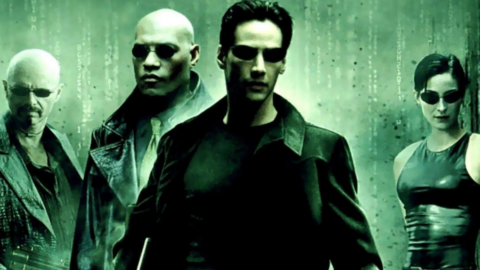
Bobby Kotick, CEO of Activision Blizzard, has claimed that blocking Microsoft’s acquisition of the publisher would bring a major blow to the UK’s aim of becoming a technology superpower.
Microsoft last year acquired Activision Blizzard in a deal that was estimated to cost approximately £50billion ($68billion USD). However, the move has faced ongoing criticism from numerous regulatory bodies and fans.
Last September, the UK’s Competition and Markets Authority (CMA) voiced concerns that the merger may “harm rivals” and “damage competition” in the gaming industry. The CMA then confirmed it would consider “an in-depth Phase 2 investigation,” following on from a probe it launched last summer.
It was reported earlier this week that the UK’s regulatory body is set to oppose the deal. It comes amid the CMA’s plans to this week publish its provisional findings on the takeover, and notify the relevant parties of possible solutions to any antitrust concerns it may have.
During an interview with CNBC yesterday (February 7), Blizzard CEO Kotick said (via VGC): “Well you think about a post-Brexit UK… it’s probably the first country where you’re seeing a recession, and the real severe consequences of a recession.
“If you’re the UK, and you have an incredibly educated workforce with a lot of technical talent […], I would think you’d want to embrace a transaction like this where you gonna see job creation and opportunity. And it really isn’t at all about whether it’s Sony or Microsoft’s platform; it’s really about the future of technology.:
Kotick went on: “If a deal like this can’t get through, [the UK] are not going to be Silicon Valley, they will be Death Valley.”
Elsewhere, the CEO said that the regulatory bodies “don’t know our industry, so they’re trying to come up to speed and understand the [gaming] industry better”. He added: “I don’t think they understand that it’s a free-to-play business.”
Yesterday also saw Prime Minister Rishi Sunak announce the creation of a new standalone government department for science, innovation and technology.
Per a GOV.UK press release, it will “drive the innovation that will deliver improved public services, create new and better-paid jobs and grow the economy”.
It adds: “Having a single department focussed on turning scientific and technical innovations into practical, appliable solutions to the challenges we face will help make sure the UK is the most innovative economy in the world.”
It is believed that Microsoft has paid close attention to the CMA, with the body seen to be less predictable than its counterparts in Europe and the US. Therefore it could potentially influence the decisions on the proposed merger.
Earlier this year, it was reported that it was “likely” Microsoft would receive an EU antitrust warning, with the European Commission drawing up its “statement of objections” to the deal. These objections will need to be addressed before the deal can go ahead.
But in November 2022 Microsoft confirmed it was set to offer “remedies” to EU antitrust regulators in response to their formal objections.
This week’s New York Times report claims Microsoft is hoping those same remedies will satisfy the UK’s CMA.

According to four people “briefed on the matter who were not authorised to speak publicly”, Microsoft wants “to convince both Britain and the European Union to accept its concessions and approve the deal, which could make it easier for the company to reach an agreement with America’s Federal Trade Commission before the scheduled administrative trial starts in the summer”.
Last December, the Federal Trade Commission (FTC) confirmed it would be trying to stop Microsoft’s takeover of Activision Blizzard.
In their statement, the FTC claimed that Microsoft would “gain control of top video game franchises, enabling it to harm competition in high-performance gaming consoles and subscription services by denying or degrading rivals’ access to its popular content”.
Sony has also claimed that Xbox’s ownership of Call Of Duty could lead to gamers switching consoles, but Microsoft made it clear that it intends to keep the long-running franchise on PlayStation and available across different platforms.
Phil Spencer, Microsoft Gaming CEO, has claimed on several occasions that the company’s acquisition of Activision Blizzard is more about mobile gaming, rather than restricting AAA titles like COD.
The post UK risks “becoming Death Valley” if it blocks Microsoft deal, says Activision CEO appeared first on NME.









